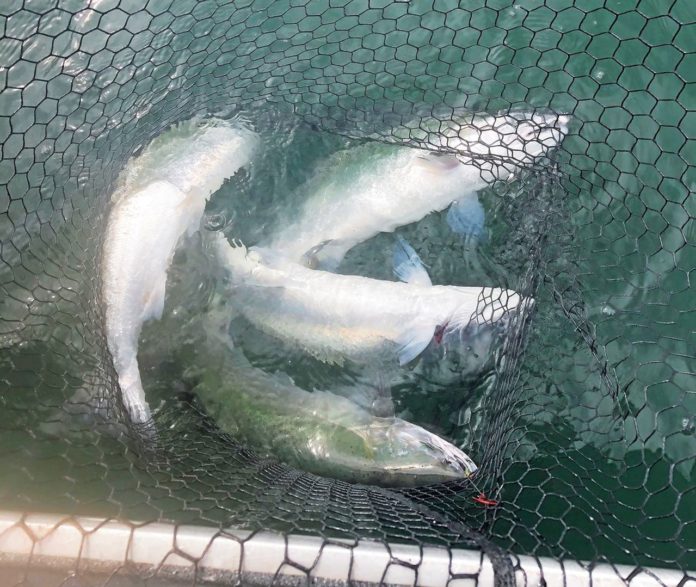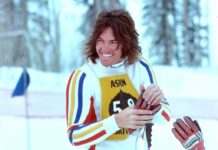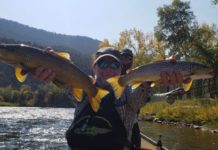For nearly five decades I’ve owed a debt of gratitude to my college adviser in Oregon State University’s Department of Fisheries and Wildlife. He asked a question that changed my life forever.
“When do you want to take organic chemistry?”
Huh? Memorize bundles of capital letters and hexagons married to other hexagons with half-hexagonal children (sometimes twins and triplets) that I’d forget all about after the final?
Nope. I’d already flunked out of college once. Why would I want to start all over?
Fortunately, I’d also already scooped Dirty Harry (Clint Eastwood) in “Magnum Force,” who uttered “A man’s got to know his limitations” in 1973, not quite a year after my escape from organic chemistry.
I’d been testing and adjusting mine in the Navy for seven years and a war.
So on a whim I changed majors to journalism with a fish and wildlife minor (no organic chem required) and became a typewriter biologist instead.
And can thus thank my lucky stars and fairy godmother I only had to record the frustration of Tucker Jones on Thursday instead of walk a mile in his shoes as he joined his Washington counterpart, Charlene Hurst, in shutting down one of the world’s most popular fisheries during its peak.
They’re each the respective managers of Columbia River programs for the Oregon and Washington Departments of Fish and Wildlife and topped many anglers’ bad lists after having to shut down coho fishing just as it began to live up to its promise.
But more on that in a bit — after some more typewriter biology.
It allows me to write about myriad other options, proving as usual we’re all living in a very special place in this world, despite the social media barbs searching for low-hanging targets.
For example: All those fat coho (and offshore reports confirm) are kind of like silver spray paint. The can has just begun to spit them into the bar, but the ocean is still full of salmon and the quota was only half-done by last Sunday. It’s open to fishing and tides are favorable for taming one of the world’s most treacherous bars (if only the weather/wind will cooperate).
More? Head south of Falcon, where not only is hatchery coho open, but so is chinook (not off the Columbia, though). AND starting Saturday, it became any coho in the two-fish daily bag limit. AND more unclipped coho have been added to that quota, which will allow it to last longer. AND the clipped coho quota is less than half-filled. AND wild coho can be kept on certain days in several bays coastwide, including Nehalem and Nestucca.
Still hungry? Halibut fishing at all depths has been opened to seven days a week, as is nearshore fishing, with quotas still unmet.
Dessert tray? A sturgeon retention season near Portland is approaching (Sept. 10 is the first day). … The lower Deschutes River is open for hatchery summer steelhead. … High Cascade lakes are turning out some great trout fishing with a few thick insect hatches. … Smallmouth bass and other panfish are probably within a short drive of your home in just about any direction.
And on the menu? Jones and Hurst will meet again in the coming week to talk about some tribal fishing and chances are good they’ll also discuss reopening at least Buoy 10. Not a given, certainly, but they don’t like this situation any better than the whiners.
“This is not OK. This is awful,” Jones told me after Thursday’s grueling session.
Bottom line? Yes, there’s some spilled milk on both sides of that decision, but our glasses are still way more than half full.
It ain’t rocket science folks; just basic typewriter biology.
Maxine McCormick of Portland set a new fly casting distance record recently at the World Championship Fly Casting competition in Norway.
Cheers! To Maxine McCormick of Portland, who just pulled off the greatest fly casting feat in history at Gaustablikk, Norway.
You may remember her from a 2019 column touting her unprecedented string of consecutive gold medals in the World Championships of Fly Casting from the ages of 12 to 15.
This year, the 18-year-old, soon-to-be-sophomore at the University of Washington competed in four events, winning three of them, including the breaking of her own fly casting distance record with a 165 foot toss! (I can’t even see that far when I fly fish).
McCormick’s coach, Chris Korich, and father, Glenn, also won golds in accuracy categories, completing a sweep of all three divisions, women, men and veteran.
Yes, she does fly fish as often as possible with her father and works part time in a Seattle fly shop.
And hats off: To the Clackamas Chapter of Trout Unlimited, which recently orchestrated the placement of 387 logs in the upper Clackamas River to improve rearing habitat.
The chapter has actively and quietly pursued an ambitious program of restoration and volunteerism for boots-on-the-ground work.
— Bill Monroe for The Oregonian/OregonLive
Credit: Source link































